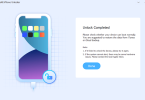 Organizations create and consume data in substantial quantities, and it becomes challenging to manage as additional data is amassed. The information is used to enhance operations, provide better customer service, and create personalized marketing campaigns, to name but a few. Despite the growing pressure to ensure better data security and privacy, companies fail to oblige, and personal information falls into the wrong hands, so cyber criminals can impersonate a victim and steal their identity. Countless records have been stolen and leaked in the past decade, and for individuals, the costs can be significant if the breach isn’t addressed appropriately and promptly.
Organizations create and consume data in substantial quantities, and it becomes challenging to manage as additional data is amassed. The information is used to enhance operations, provide better customer service, and create personalized marketing campaigns, to name but a few. Despite the growing pressure to ensure better data security and privacy, companies fail to oblige, and personal information falls into the wrong hands, so cyber criminals can impersonate a victim and steal their identity. Countless records have been stolen and leaked in the past decade, and for individuals, the costs can be significant if the breach isn’t addressed appropriately and promptly.
So, how do you know for sure if your account has been compromised? Please continue reading to find out.
Contents
What Are the Main Causes of Data Breaches?
Not a day goes by without a headline announcing that a well-known enterprise suffered a data breach, putting its business and customers at risk. In a massive credential-stuffing attack, PayPal accounts were hacked, so for two days, threat actors had access to individuals’ full names, dates of birth, postal addresses, and so on. In case you didn’t already know, credential stuffing is a technique by which hackers use stolen usernames and passwords from a data breach to break into other user accounts or systems. It’s widespread due to the login credentials sold on the black market, which is more active than ever.
Reasons for how data breaches happen can be traced back to unintentional attacks. More exactly, we’re talking about incidents involving employees with access to sensitive information who make mistakes that enable cybercriminals to gain access to the organization’s systems. Although prosecutions are relatively rare, the data protection watchdog will continue to pursue individuals through the courts for recklessly handling personal data. Equally, victims can make a claim for compensation invoking damage to credit, unauthorized charges, and emotional distress. A detailed guide is now available at https://www.how-to-sue.co.uk. Malicious actors will attempt to get hold of your account information via phishing emails and more, so be careful.
Stolen Personal Information Is Fuel for Identity Theft
Cyber thieves leverage the stolen data to commit more crimes; financial gain is the biggest motivation. Threat actors are known to commit various crimes, including but not limited to:
- Using debit/credit card information for fraudulent purchases
- Changing your billing address
- Accessing your bank accounts
- Renting an apartment
- Selling personal data to other cyber criminals on the dark web
Needless to say, identity theft is a very serious crime that can destroy your credit and tarnish your reputation. The consequences range from annoying to life-shattering.
If malicious actors manage to get hold of your social security number, it can put your entire life on hold, and you won’t find out someone is using your number until you’re turned down for credit. You supply your social security number to businesses and government agencies, so if they get hacked, you’ll deal with alarming consequences. It’s recommended to contact your local police department and ask for a copy of your personal records – it creates a paper trail that will turn out to be helpful in the future. There’s no better time than now to review your passwords, enable two-factor authentication, and shred documents with personal information.
Check Whether Your Data Has Been Leaked Online
Companies are legally required to inform you without undue delay if your data has been breached, but, more often than not, this disclosure is realized by means of vague public statements, so you risk being kept uninformed. Your service provider should reach out to you by email or letter, explaining that they’ve suffered a security incident and your personal information has been compromised. The enterprise should provide comprehensive details about the size of the breach and the sensitivity of the information involved, but it might take weeks before you hear a peep on that front. The point is that it’s up to you to keep a close eye on things.
These days, there are several websites that allow people who access the Internet to check whether or not their personal data has been compromised by data breaches. Have I Been Pwned is one such example? All you have to do is to enter your email into the search engine. The online platform will reference it against billions of accounts compromised in past incidents to see if someone has taken control of your email address (or the user profile that’s been created with it). If you’re rewarded with a green screen, good for you; it means your personal data hasn’t been involved in a cyberattack, and you’ll receive notifications in case you’re found in future data breaches.
More from us: [2023] How to Solve iPhone Attempting Data Recovery Failed after Updating ios 16/iPadOS 16
What To Do If Your Personal Data Has Been Compromised Online
Even if your data was leaked online, it’s not the end of the world, although it can change the course of your life. Find out what information was compromised so that you can address the issue right away, sign up for transaction alerts for your bank accounts, monitor your credit report, and, last but not least, be aware of phishing scams. Threat actors will trick you into divulging more details, so be suspicious of emails, text messages, and phone calls pressuring you into making overdue payments or updating your account information. Without access to sensitive data, cybercriminals are stopped in their stratagems.
Finally, yet importantly, it’s worth noting that some companies offer support as part of their data breach response, which can include credit report monitoring. What you need to know is that these offers don’t guarantee protection against identity theft or financial harm, so take the necessary steps to protect yourself; otherwise, you’ll regret it. It feels like there’s very little you can do in the event of a security incident, but it’s important to stay vigilant. While the ability to share information is critical at present, that doesn’t mean you must share information across platforms.
All things considered, the issue isn’t whether a data breach will reveal the information but rather when it will happen. It’s understandable if you want to walk away from a company falling victim to a security violation.






